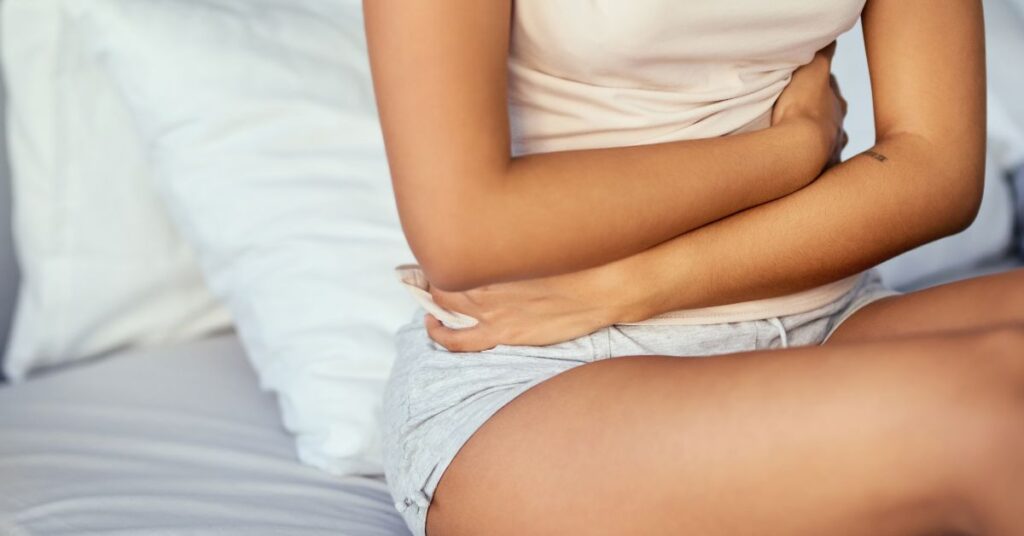Endometriosis is a serious and painful condition in which tissue similar to the endometrium, which lines the uterus, grows in other areas of the body. The disease is also prevalent, with the World Health Organization approximating that one in 10 women and girls worldwide have endometriosis.
Endometriosis is also one of the most common causes of infertility. Indeed, up to 50 percent of women who have endometriosis also experience infertility. If you’re struggling to conceive due to endometriosis, you’re not alone. Thankfully, there’s hope. Read on to learn about how best to conceive with endometriosis.
Cut Out Tobacco and Alcohol
There’s no cure for endometriosis, so it’s important to control lifestyle factors that negatively impact fertility. Alcohol and tobacco use is a good place to start. Both substances are harmful to your baby if you become pregnant and both can affect your fertility. Plus, smoking has also been linked to ectopic pregnancy, a medical emergency occurring when a fertilized egg starts to grow outside the uterus.
Your partner should also consider reducing or eliminating tobacco and alcohol use, particularly if you’re trying to conceive through in vitro fertilization (IVF). Both negatively impact sperm quantity and quality.
Strive for a Healthy Weight
Maintaining a healthy weight is a great way to boost your fertility. In addition to endometriosis, being overweight or underweight may compound your fertility problems, making it more difficult to conceive.
You may need a nutritionist to help you improve your diet, and it’s important to work out an exercise schedule that helps you reach your goals. Exercise is a crucial part of reaching a healthy weight, but overdoing it can interfere with your fertility. Be sure to alk to your physician about how much exercise is right for you.
Adhere to a Healthy Diet
Endometriosis causes inflammation in your body, which works against your ability to conceive. However, eating healthy foods can help your body fight inflammation and boost your fertility.
Whole grains, fruit, vegetables, leafy greens, and legumes are all excellent foods to include in your diet. Healthy fats, like those found in avocados, olive oil, and salmon, are good for your body, too. On the other hand, processed foods, too much animal protein, and high amounts of sugar and starch work against your body’s health.
Take Your Vitamins
If your body doesn’t have all the nutrients it needs, it’s more difficult to conceive. Additionally, deficiencies in some vitamins are known to play a part in some conditions that affect your fertility, including endometriosis.
Sometimes prenatal vitamins alone aren’t enough to correct vitamin deficiencies. For example, vitamin D deficiency is common, especially in northern latitudes. This deficiency contributes to a whole host of health problems, including endometriosis. Taking too much of some vitamins can also be dangerous, so it’s important to talk to your doctor about which vitamins you should take.
Manage Your Stress
Stress also increases inflammation in your body. Plus, it increases your pain levels. Taking steps to manage your stress helps cope with endometriosis and, in turn, help you conceive. Mindfulness exercises, meditation, yoga, and tai chi are excellent ways to help reduce stress. One study found that participating in yoga helped alleviate pain caused by endometriosis. Enjoying hobbies, hanging out with friends, and spending time in nature can also be beneficial.
Infertility comes with its own set of stress, and you may wish to seek counseling to help you cope. We also encourage you to read about strategies for seeking support from your partner. Feeling secure in your relationship is an important part of managing stress.
Do Helpful Exercises
It’s hard to exercise if you’re in pain, so it’s important to find the right exercise regimen for you. Aerobic exercises like swimming and cycling are great choices because they help you stay in shape and may help regulate your estrogen levels.
Not all exercise is helpful. Intense exercises like running, football, and boxing may exacerbate your symptoms of endometriosis. Work with your doctor to find an exercise routine that helps you stay fit but doesn’t increase your pain levels.
A Fertility Specialist Can Help You Conceive with Endometriosis
While the above tips are helpful for your overall health and may help you conceive, the most important tip of all is to see a fertility specialist. Endometriosis is a complicated disease that can affect many areas of your body. It affects everyone differently, depending on exactly where and how extensive the tissue is in your body.
If you know you have endometriosis, it’s a good idea to schedule an appointment with a fertility specialist before you begin trying to conceive. Many medications prescribed to treat endometriosis can affect your fertility and may need to be stopped. A fertility specialist can also examine you to see whether your endometriosis has caused structural problems that will prevent you from conceiving.
Fortunately, there are many ways fertility specialists can help. You may need surgery to open your fallopian tubes if they’re blocked with tissue that has grown due to endometriosis. Intrauterine insemination may help you conceive, and many couples have success with IVF. We encourage you to schedule a consult with Dr. Macer to discuss your options.







